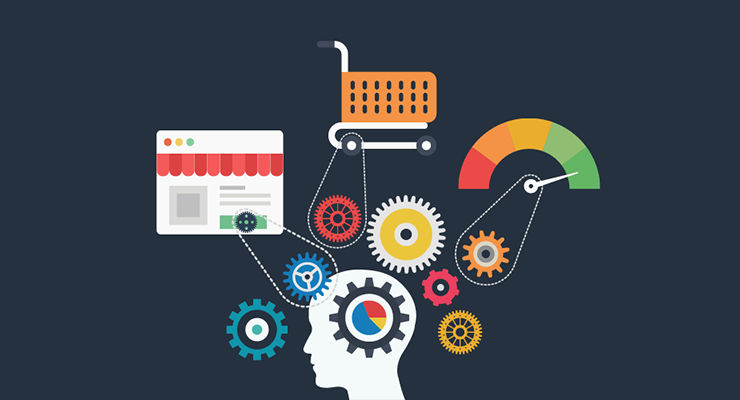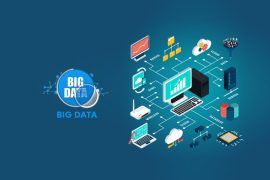In recent times, artificial intelligence (AI) has been developing at a rapid rate, and this has sparked a significant shift in how people live, work, and interact with technology. AI’s disruptive effects are felt in many areas of our society. AI is no longer a sci-fi concept but a reality today as we see how intelligent devices and algorithms are being incorporated into every area of our lives, leaving no field without its influence, be it mainstream fields such as education, health care, finance, or some extremely unconventional fields such as sports, agriculture, disaster relief, and other fields where one cannot even imagine. One such field is Marketing and sales, which was considered to be a field of entire human effort and has also been into the clutches of AI and is being enhanced by it in ways unimaginable proving to be a game changer and revolutionizing the elements of business engagement between customers and businesses to generate revenue.
Table of Contents
Integration of AI in Marketing

The Integration of Artificial Intelligence (AI) technology has caused a paradigm shift in the function of marketing and sales in today’s quickly changing business environment. The way that marketers and sales professionals approach consumer engagement, data analysis, and decision-making has changed as a result of AI’s emergence as a potent ally. AI and marketing and sales have created a revolutionary synergy that has opened the way for data-driven strategies, individualized customer experiences, and increased effectiveness. In today’s article, we will examine how AI-driven tools and strategies are transforming these sectors and driving businesses toward unprecedented development and success as we delve into the impact of AI in marketing and sales
To continue our journey in understanding the role of AI in enhancing marketing strategy here are the main fields which come under the collaboration of AI and Marketing Strategy:
Predictive Analytics and Forecasting:
Ai-powered predictive analysis and forecasting involve using data analytics and AI algorithms to predict future outcomes based on historical data and patterns. By analyzing large datasets, businesses can anticipate customer behavior, market trends, and demand for products or services. This enables them to make informed decisions, optimize resources, and proactively address challenges. Predictive analysis helps businesses identify potential risks and opportunities, making it a valuable tool for strategic planning and decision-making. With forecasting, businesses can better allocate resources, plan inventory levels, and improve overall operational efficiency. By leveraging predictive analysis and forecasting, businesses can gain a competitive edge, improve customer satisfaction, and drive growth and success in an ever-changing market.
Pricing Optimization:
Price optimization is a strategic approach used by businesses to set product prices that maximize revenue and profitability while considering market demand, competitor pricing, and customer behavior. AI-driven price optimization tools analyze vast amounts of data, such as historical sales data, market trends, and customer preferences, to identify the most effective pricing strategies. By leveraging AI, businesses can implement dynamic pricing models that adjust prices in real time based on changing market conditions and customer demand. AI algorithms can also perform competitor price analysis to ensure competitiveness in the market. Price optimization allows businesses to find the right balance between offering competitive prices to attract customers and maximizing profit margins. It enables businesses to identify pricing strategies that resonate with their target audience and adapt to market fluctuations swiftly. Overall, price optimization with AI empowers businesses to make data-driven pricing decisions that lead to increased sales, improved customer satisfaction, and enhanced profitability.
Customer Insights and Personalization:
Customer insights and personalization are crucial components of a successful marketing strategy. By leveraging data analytics and AI-driven technologies, businesses can gain valuable customer insights, such as preferences, behavior patterns, and purchase history. These insights enable marketers to create comprehensive customer profiles and segment their audience effectively. With a deep understanding of individual customers, businesses can personalize marketing messages, offers, and content to cater to specific needs and interests. Personalization fosters stronger customer relationships, improves engagement, and increases the likelihood of conversions. By tailoring experiences to meet the unique preferences of each customer, businesses can deliver a more relevant and satisfying journey, leading to enhanced customer loyalty and brand advocacy.
Programmatic advertising:
Programmatic advertising is an automated and data-driven approach to ad buying, where AI algorithms analyze user behavior and real-time data to deliver targeted ads. It optimizes ad placements and bidding in real time, ensuring that the right ad is shown to the right audience at the right time. This efficient and precise method enhances ad performance, increases click-through rates, and maximizes return on investment (ROI) for advertisers. Programmatic advertising allows for personalized and relevant ad experiences, making it an essential tool for marketers seeking to reach their target audience effectively in the fast-paced digital landscape.
Content Creation and Optimization:
Content creation and optimization play a pivotal role in driving engagement and conversions in the digital age. AI-powered tools and algorithms can assist businesses in generating high-quality content efficiently and optimizing its performance. AI-driven Natural Language Generation (NLG) tools can produce written content, such as blog posts, product descriptions, and social media updates, saving time and resources for content creators. Furthermore, AI analytics tools can analyze content performance, user engagement, and search engine optimization metrics, enabling marketers to identify successful patterns and optimize content accordingly. By leveraging AI in content creation and optimization, businesses can deliver more relevant and engaging content to their target audience, boost website traffic, and improve search engine rankings. As the digital landscape evolves, AI-powered content creation and optimization will remain essential in delivering impactful and data-driven marketing campaigns
Recommendation Engines:
Recommendation engines are AI-powered tools that analyze user data and behavior to provide personalized suggestions and recommendations to users. By leveraging machine learning algorithms, recommendation engines predict user preferences, interests, and behaviors based on historical interactions and patterns. These algorithms are commonly used in e-commerce platforms to suggest products to users. Recommendation engines enhance the user experience by offering relevant content, increasing engagement, and encouraging repeated visits. They also play a vital role in boosting sales and conversion rates by guiding users to products they are likely to be interested in. As a result, businesses can build customer loyalty, increase customer satisfaction, and achieve higher revenue by delivering tailored and engaging experiences through recommendation engines.
A/B Testing and Optimization:
A/B testing, also known as split testing, is a method used to compare two versions of a webpage, email, ad, or any other marketing element to determine which one performs better. In A/B testing, two variations, A and B, are shown to different segments of the audience, and their responses are measured and compared. Marketers use A/B testing to optimize various elements of their marketing campaigns, such as headlines, call-to-action buttons, images, and content layouts. By comparing the performance of different variations, marketers can identify the most effective elements that drive higher engagement and conversions. Once the test results are analyzed, the winning variation is implemented, and further tests are conducted to continuously optimize and improve marketing efforts. A/B testing enables data-driven decision-making, helps marketers understand customer preferences better, and leads to more effective and efficient marketing strategies.
SEO and AI:
AI is playing a transformative role in Search Engine Optimization (SEO), revolutionizing how businesses optimize their websites to rank higher in search engine results. AI-driven tools and algorithms analyze vast amounts of data, user behavior, and search patterns to identify the most relevant and valuable content for users. With AI, businesses can enhance keyword research, content creation, and on-page optimization. AI-powered tools suggest relevant keywords based on user intent, helping marketers tailor content to match search queries effectively. Natural Language Processing (NLP) algorithms enable search engines to better understand user queries and deliver more accurate results. AI also assists in backlink analysis and link-building strategies, identifying high-quality backlink opportunities that boost website authority and rankings. Additionally, AI helps with monitoring and analyzing website performance, allowing marketers to make data-driven decisions for ongoing optimization.
Social Media Marketing:
Social media marketing is a digital marketing strategy that involves using social media platforms to connect with the target audience, build brand awareness, and promote products or services. Businesses create and share content such as posts, images, and videos to engage users, foster relationships, and drive website traffic. Social media marketing also involves running paid ad campaigns to reach a broader audience and achieve specific marketing goals. By leveraging social media analytics, businesses can analyze user interactions, preferences, and trends to optimize their marketing strategies and deliver more personalized and engaging content. Social media marketing has become an essential aspect of modern marketing, enabling businesses to reach and connect with their audience on a global level.
Conclusion
To summarize, improving AI marketing strategy entails leveraging the potential of AI technology to enhance customer insights, tailor marketing messages, automate tasks, and make data-driven decisions. These are some ways that firms may use AI to greatly enhance their marketing initiatives, boost client engagement, and gain a competitive edge in the rapidly changing digital marketplace.





